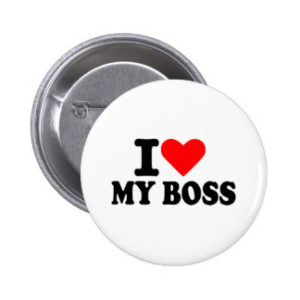Superstar Bosses: 10 Things They Do Every Day

There are good bosses and bad bosses. But if you’re lucky, you get to work for a superstar boss.
These LeBron Jameses of people management are exceptionally rare. But during my 20-year corporate career, I’ve had the incredible luck to work for a few of them. They’re nothing less than amazing.
It’s not enough to say that elite people managers communicate well, say thank you and are empathetic. Those are basic qualities that all good bosses demonstrate — and, frankly, no one has any business being a boss if he or she doesn’t.
Rather, the very best bosses seem to inhabit the role like a second skin. They do a multitude of things, big and little, to create an atmosphere of intense goodwill.
Here, in my experience, are 10 of them:
They make you feel important. Superstar bosses carefully explain your role in the organization and why it and you matter in driving the business forward. They describe how experience and success in your role could lead to new opportunities and career growth. And when they’re meeting with you face to face or on the phone, they have an uncanny knack for shoving aside any distractions and making you feel like the only person in the world they care about at that moment.
They handwrite thank-you notes. Sure, it’s great to get an appreciative email or a congratulatory comment in a company meeting, but a handwritten note from a company leader feels weightier. I still have notes I received years ago. One former boss from time to time would send a book he thought I’d enjoy, with a handwritten message inside.
They make you laugh. Almost certainly, your job is hard and so is the boss’s. A supervisor with a sense of humor reinforces relationships with employees and simply makes the work day more enjoyable.
They teach you stuff you never would have thought of on your own. I was managing several people at a large technology company when, during a conversation with my boss, I referred to “my team.” He stopped me. “It’s never ‘my team,’ ” he counseled. It’s ‘the team.’ That’s more collegial.” This seems like a little thing, but it’s indicative of another key quality…
They’re humble. These management savants project a sense that it’s not all about them, but about you and enabling you to do the best job. Research backs the importance of this attitude. “Humility has its effects across levels of an organization in an empowered, uplifting way. You can’t browbeat people into performance,” Angelo Kinicki, an Arizona State University professor who helped lead a study on the topic, told USA Today.
They surprise you with nice gestures. On a recent Friday, my boss emailed the company: “Today is Employee Appreciation Day! The exec team would like to thank each and every one of you for all of the great work you do every single day. Client demands allowing, please take off and start your weekend a few hours early today.” Again, a little thing, but it seemed above-and-beyond thoughtful.
They challenge you to do your best work. Superstar bosses set high standards and challenge employees to meet them. Can you really admire a boss who demands anything less?
They’re accessible. They’re usually there when you need them. You rarely get the sense they’re scrambling to make time for you, even though they actually might be.
They don’t send emails at 3 AM. While an occasional emergency is inevitable, the best bosses try not to bombard the team with messages that they’ll inevitably feel compelled to respond to during their off hours. If it can wait, it can wait.
They don’t BS you. The greatest bosses are consistent in their ability to deliver straight talk, whether it’s about your performance or business issues. They know how to correct you when you’re wrong, without it feeling like a personal insult. They’re as transparent as possible about anything else that affects the company and your job.
Study after study has shown the value of good bosses in motivating and teaching employees. If you’re fortunate enough to have worked for superstar bosses, you know that their worth is off the charts.
Steve Eisenstadt is Content Director at Offleash. He works with clients on developing high-impact op-ed pieces, blogs, case studies, white papers and other written content. His experience includes 17 years in corporate and agency communications—all in high tech—and 15 as a journalist. Contact Steve at steve@offleashpr.com.